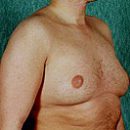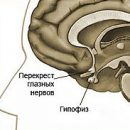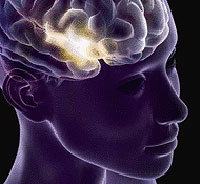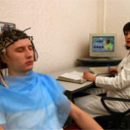What is thyrotoxicosis? How is this disease, what are the symptoms of thyrotoxicosis? I read the answers to these questions in the article.
Content
What is thyrotoxicosis
Thyareotoxicosis - a condition caused by a persistent increase in the level of thyroid hormones. Sometimes it uses the term hyperthyroidism to designate this state («hyper» - a lot) - improving the function of the thyroid gland. Nevertheless, the term thyrotoxicosis (literally - «Poisoning thyroid hormones») more adequately reflects the essence of the disease, since hyperthyroidism also happens under normal conditions, for example during pregnancy.
Thyareotoxicosis is a state, inverse hypothyroidism: if, with a decrease in the level of thyroid hormones, all processes in the body slow down, with thyrotoxicosis, metabolic processes proceed with increased intensity. This is how patients with thyrotoxicosis are reported on their symptoms
 Many patients describe the constant feeling of heat and severe sweating, even with open windows in cold weather, because of which the skin of such patients is always hot and wet. Often arise «riding» blood to the upper half of the body, neck, face. Patient hair becomes fragile, thin and can fall out. Changes in psyche are found practically in all patients, as a result of which they are often sent to a psychiatrist. Patients become fussy, excited, often - aggressive. The mood in patients changes very quickly from euphoria to depression, often appears.
Many patients describe the constant feeling of heat and severe sweating, even with open windows in cold weather, because of which the skin of such patients is always hot and wet. Often arise «riding» blood to the upper half of the body, neck, face. Patient hair becomes fragile, thin and can fall out. Changes in psyche are found practically in all patients, as a result of which they are often sent to a psychiatrist. Patients become fussy, excited, often - aggressive. The mood in patients changes very quickly from euphoria to depression, often appears.
With thyrotoxicosis, the metabolism flows with increased activity. That is why, despite the permanent overeating, patients are not corrected, but, on the contrary, losing weight. Many patients with thyrotoxicosis note constant thirst, abundant urination and diarrhea, about which patients are often hospitalized in gastroenterological offices.
Heart damage occurs with thyrotoxicosis in most cases and, very often, represents the main problem. The most frequent symptoms are rapid heartbeat and interruptions in the work of the heart, which are associated with the enhanced work of the heart muscle. Dyspnea is also often found in patients, over which patients are often diagnosed with asthma.
The damage to the musculoskeletal system is also a frequent phenomenon in patients with thyrotoxicosis.
Almost all patients develop a thyrotoxic tremor - a small jitter that is well noticeable on the fingers of the elongated hands. Increased level of thyroid hormones leads to a decrease in calcium reserves in bone tissue, which increases the risk of osteoporosis and fractures. Weakness associated with muscle atrophy, is also celebrated by many patients. In most patients with thyrotoxicosis, goiter is detected.
One of the most frequent symptoms of high activity of the thyroid gland are eye symptoms - eye bulges.
Causes of thyrotoxicosis development
The most common cause of thyrotoxicosis - in 8 out of 10 cases - is Diffuse toxic goiter (DTZ), or Greivsa-Bases disease. As well as autoimmune thyroiditis (Hashimoto), diffuse toxic goiter is an autoimmune disease, and therefore is often inherited and combined with other autoimmune diseases. Often autoimmune thyroiditis and diffuse toxic goiter are observed in one family, which can speak of a single gene or group of genes responsible for the manifestation of these diseases. Most often, the disease occurs at the age of 20 - 40 years, but there are cases of the disease and at 5 years and even in newborns.
The disease was first described by Robert James Graves in 1835 in Dublin (Ireland), and in 1840, German doctor Carl Adolf von Basedov in Merzeburg (Germany) («Merzeburg Triad Bastedov» - Tachycardia, goiter).
It is believed that the mechanism for the development of an autoimmune process with diffuse toxic goiter is the development of the immune system of special antibodies aimed at the receptor Thyreotropic hormone on thyroid cells. At the same time, iron is constantly in a state of increased activity, which leads to an increase in the concentration of its hormones in the blood.
The reason for the formation of these antibodies remains unclear. The role of various microorganisms (bacteria) in the occurrence of the disease is discussed.
According to the same version, in patients predisposed to the development of the disease, there are «anomalous» Receptors K Thyreotropic hormone, which are detected by the immune system as «Alien». On the theory of other scientists, the cause of the disease is a defect in the immune system, which cannot contain the immune response against its own tissues.
Other causes of thyrotoxicosis:
- Increased iodine consumption can also lead to thyrotoxicosis, especially against the background of the already existing thyroid disease («Iodine bassted»)
- Postpartum thyroiditis, which arises from every 20th woman after childbirth, can also lead to thyrotoxicosis.
- Overdose of thyroid hormones in the treatment of hypothyroidism and goiter. Some women take large dose of thyroxine, causing drug thyrotoxicosis, to control body weight.
- Educated education Tireotropic hormones The pituitary gland leading to constant thyroid stimulation.









